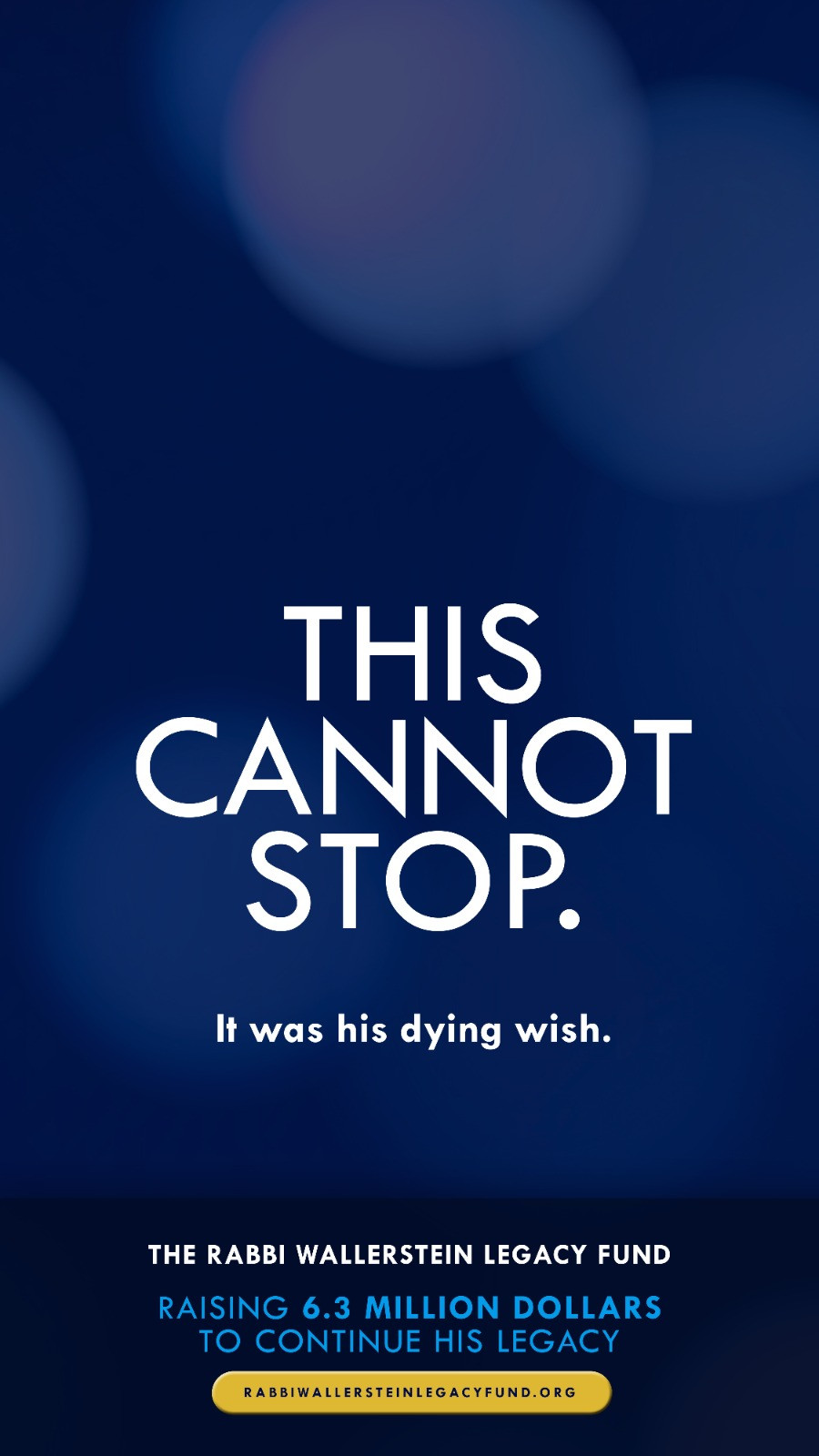[COMMUNICATED]
When he passed away recently, Rabbi Zechariah Wallerstein was the director of Ohr Naava and its worldwide network of related programs for women.
But he never set out to build organizations for women. In fact, for the first half of his life, he split his day as a boys’ Rebbi in the morning and a businessman in the afternoon.
What changed?
In 2002, Rabbi Wallerstein was invited to give a small shiur on Tisha B’av to post-seminary girls. Dozens of young women showed up. Recognizing their deep desire for inspiration and support outside mainstream schooling, he considered the many ways Torah communities lack infrastructure for women.
“What if these were my daughters?” he wondered.
Rabbi Wallerstein began listening out and hearing about the girl who stopped keeping Shabbos and was kicked out of her home. About the girl who was told she was “garbage” and kicked out of high school. About the girl who was told she must be “damaged” because she was 26 and unmarried.
During Shiva, his family and colleagues spoke about the mantra he carried for the next two decades: What would I do if it was my daughter?
Until his last day in this world, that one question drove every decision he made, leading him to create Bnot Chaya Academy for girls rejected from mainstream high schools and The Ranch at Bethel, an 18-acre kosher therapy retreat for survivors of trauma. He built Ateres Naava seminary with an afternoon track for girls pursuing a college degree and Bnos Bina, a rigorous training seminary for future leaders in chinuch and kiruv.
The original Tisha B’Av shiur became the annual “Tisha B’Av Around the World,” a 24-hour Livestream of inspiring stories, lectures, and presentations transforming a day of physical hunger into a source of powerful fulfillment.
Many encountered his impact at Avinu Malkeinu events, filling auditoriums in 11 cities to hear today’s leading speakers set the tone for the Yomim Noraim. Others found it at the Brooklyn MRKT, the world’s only expo by-and-for frum female entrepreneurs, which benefited Rabbi Wallerstein’s programs.
A successful businessman, Rabbi Wallerstein funded most of his early projects out of pocket. As the organizations exploded he took on the reluctant role of the fundraiser.
One close colleague relates how he was always in Emergency Room mode. “I’d ask how we would pay for this or that new program and he’d look at me and say: ‘When the call comes in and it’s your child in an accident, you don’t ask if you can afford to do something about it. You do something about it.’”
Nevertheless, the burden of the programs that he started was on his shoulders and he pushed himself to raise the millions needed to start, build and sustain them to success.
The work he began now operates at an annual budget of $6.3 million.
At the levaya in Eretz Yisroel, Rabbi Twersky echoed students, colleagues, Rabbonim and Askanim in a call to ensure Rabbi Wallerstein’s legacy goes on: “There’s a chiyuv upon all of us to make sure his work doesn’t stop,” he declared. “To make sure that every single daughter in Klal Yisroel should have the way to come back to Klal Yisroel.”

Recent Comments